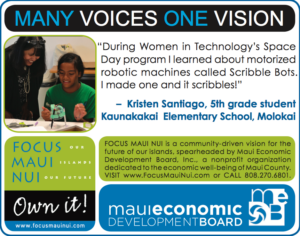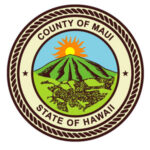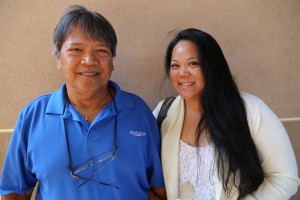
Feb 25, 2015 | Small Business
 Accu-Pest & Termite Control Services owner/operator Jerry Edlao has his hands full getting rid of pests for his customers, so he doesn’t have the time to tackle some of the pesky legal issues that affect his business. And that’s why the recent Legal Toolkit workshop was so valuable, he said. “I think that anyone who is a small business owner or thinking about becoming one needs to educate themselves on what (business) entity best fits their needs when doing business,” he said. “Taking advantage of workshops like this is essential to the success of a small business owner and his company.”
Accu-Pest & Termite Control Services owner/operator Jerry Edlao has his hands full getting rid of pests for his customers, so he doesn’t have the time to tackle some of the pesky legal issues that affect his business. And that’s why the recent Legal Toolkit workshop was so valuable, he said. “I think that anyone who is a small business owner or thinking about becoming one needs to educate themselves on what (business) entity best fits their needs when doing business,” he said. “Taking advantage of workshops like this is essential to the success of a small business owner and his company.”
Maui Economic Development Board sponsored the “Legal Toolkit” workshop in partnership with legal experts in the field. Prominent corporate attorneys spoke at the workshop about a variety of issues from what to consider when drafting small business legal documents to how to protect a company’s name. Edlao signed up for the workshop with his daughter, Cyje, “to increase our knowledge of various forms of business entities. We hoped that the knowledge gained at the workshop would contribute to guiding us in making informed decisions toward changing our business structure.” And, he said, he was not disappointed. “The speakers were experienced, knowledgeable and possessed a genuine desire to help small business owners like myself … The most useful lesson I learned at the workshop was understanding the process to transition from one type of business entity to another form.” Edlao said his business is “committed to providing our customers with high-quality services by utilizing Integrated Pest Management Practices that do not compromise the safety of our customers, employees and environment.”
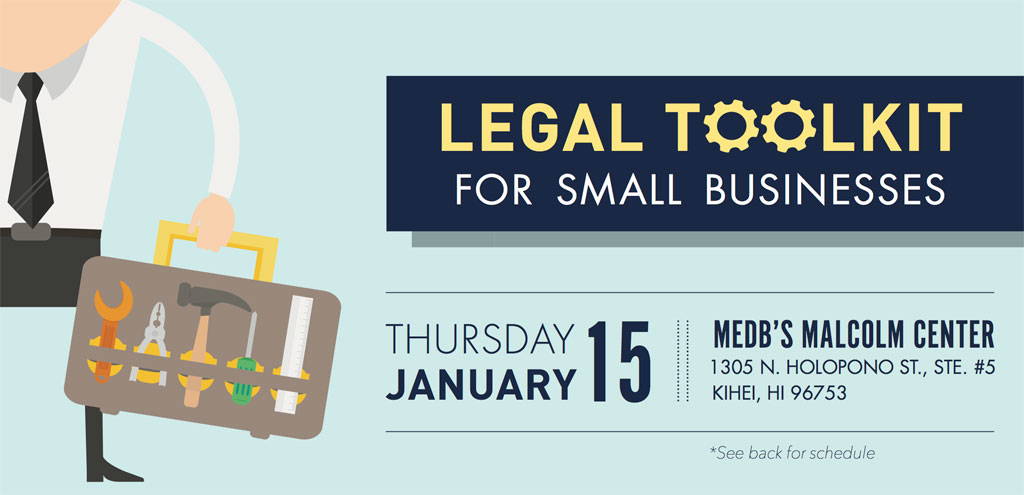
Jan 7, 2015 | Small Business
 In an effort to give small businesses a lift in 2015, Maui Economic Development Board has partnered with experienced corporate attorneys to present “Legal Toolkit.” The seminar is set for 8:30 a.m. to 12:30 p.m., Thursday, January 15, at MEDB’s Malcolm Center. Admission is $20 to hear prominent corporate attorneys for startup businesses discuss issues such as a business’ most advantageous corporate entity, what to consider when drafting small business legal documents, how to protect a company name and how to reduce tax liabilities.
In an effort to give small businesses a lift in 2015, Maui Economic Development Board has partnered with experienced corporate attorneys to present “Legal Toolkit.” The seminar is set for 8:30 a.m. to 12:30 p.m., Thursday, January 15, at MEDB’s Malcolm Center. Admission is $20 to hear prominent corporate attorneys for startup businesses discuss issues such as a business’ most advantageous corporate entity, what to consider when drafting small business legal documents, how to protect a company name and how to reduce tax liabilities.
“This seminar is aimed at helping entrepreneurs succeed in Maui’s challenging small business environment,” said MEDB Director of Business Development Gerry Smith. “Our panel of legal experts will show us how to avoid the legal pitfalls that can drain a business person of valuable time and resources, if not threaten the enterprise itself. This is an opportunity not to be missed,” Smith said.
The “Legal Toolkit” panel includes: Gregory Kim, partner at Convergent Law Group, LLP, a Silicon Valley-based firm focusing on technology companies; Chris Mashiba, partner in the Tax Department of Cades Schutte, a Honolulu-based law firm; Darren Nunn, a partner in the Corporate and Public Finance groups at McCorriston Miller Mukai MacKinnon in Honolulu, and Catherine A. Taschner, an associate in the transactional department at McCorriston Miller Mukai MacKinnon.
Registration begins at 8:30 a.m. The seminar goes from 9 to 10:45 a.m. followed by two small group breakout sessions from 11-11:45 a.m. and then 11:45 a.m. to 12:30 p.m. Topics at the breakout sessions are: “Getting the capital you need: Crowdfunding, Angel Investment and other tools”; “Tax considerations for small business: Keeping more of your money”; “Intellectual property for small business: Don’t let your crown jewels go away”; “When the rubber hits the road: Managing decisions and disputes within your ‘S’ company or LLC.”
Legal Toolkit is part of MEDB’s ongoing effort to support small businesses and improve their chances for success and job creation. You can download the flyer. To register, go to https://www.hightechmaui.com/confregister/1_form-legaltoolkit.cfm. For more information, go to https://hightechmaui.com/legal-toolkit-for-small-businesses/ or call MEDB at 875-2300.
Dec 3, 2014 | Small Business
 With the holiday gift-giving season just around the corner, a Kula entrepreneur has found a way to take 100 percent recyclable and compostable newsprint from local presses, like The Maui News, add great patterns on wrapping paper and bring a smile to gift givers and receivers alike. “Renewable newsprint is an answer to the 4 million tons of trash attributed to gift wrap and shopping bags every year — a piece of newsprint can be recycled seven times,” said Sara Smith, founder and CEO of Wrappily. “Conventional wrapping paper can not be recycled on Maui, or anywhere in Hawaii, meaning every holiday season our landfills get inundated. With Wrappily, wasted wrapping paper can be composted in local gardens or recycled with newspapers.”
With the holiday gift-giving season just around the corner, a Kula entrepreneur has found a way to take 100 percent recyclable and compostable newsprint from local presses, like The Maui News, add great patterns on wrapping paper and bring a smile to gift givers and receivers alike. “Renewable newsprint is an answer to the 4 million tons of trash attributed to gift wrap and shopping bags every year — a piece of newsprint can be recycled seven times,” said Sara Smith, founder and CEO of Wrappily. “Conventional wrapping paper can not be recycled on Maui, or anywhere in Hawaii, meaning every holiday season our landfills get inundated. With Wrappily, wasted wrapping paper can be composted in local gardens or recycled with newspapers.”
Smith launched her business a year ago, around Thanksgiving, with the help of startup incubator mBloom. Wrappily was founded to be a “smarter solution for our environment,” she said, “so being as eco-conscious and thoughtful as possible is our absolute. A close second is building and sustaining the communities in which we do business through supporting local jobs and nonprofit agencies.” Smith said she’s already seen her business have an impact on customers.
The recent Made in Maui County Festival helped Smith’s business by giving her some valuable exposure, she said. Frank R. De Rego Jr., director of Business Development Projects at Maui Economic Development Board, served on the Event Committee for the Made in Maui County Festival. Organizers said they planned to do a post-event survey with the 130-plus vendor participants, and that another festival for 2015 was very likely. Smith foresees immediate growth in her business on Maui and beyond. “Wrappily is designed to scale, in order to achieve our mission to be a solution to a global waste stream, we have to grow — swiftly,” she said. “While Maui is my and Wrappily’s home, we are actively expanding into the Pacific Northwest markets and have our sights set on California in 2015. Wrappily is designed to offer a ‘local’ product in every new area we move into.” For more information, go to wrappily.com.
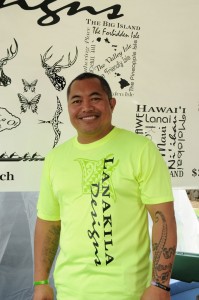
Nov 19, 2014 | Small Business
 Graphic design artist Lyndon Dela Cruz was amongst the 12 Molokai vendors attending the first-ever Made in Maui County Festival held November 7-8 at the Maui Arts & Cultural Center. “This is awesome. I’m learning a lot,” Dela Cruz said during a break between steady downpour and customers visiting him under a tent. The festival drew more than 9,000 people to the MACC where Dela Cruz said he grew more confident about his fledgling small business.
Graphic design artist Lyndon Dela Cruz was amongst the 12 Molokai vendors attending the first-ever Made in Maui County Festival held November 7-8 at the Maui Arts & Cultural Center. “This is awesome. I’m learning a lot,” Dela Cruz said during a break between steady downpour and customers visiting him under a tent. The festival drew more than 9,000 people to the MACC where Dela Cruz said he grew more confident about his fledgling small business.
Supported by his family and his wife, Janis, Lyndon Dela Cruz launched Lanakila Designs two years ago on Molokai. He creates and produces customized graphic designs that can be placed on a variety of items from cars to coolers, water glasses to school folders, and even boats. The Dela Cruzes had built and closed other small businesses including a pet store and a moving and storage service. In every instance, Dela Cruz said he learned to adjust to the market and his customers’ needs while pursuing what he found fun and interesting. “You’re not going to know whether it’s a bad idea or not unless you try,” Dela Cruz said. His latest venture represents a business pursuit that uses his lifelong love for art. “It’s my passion,” said Dela Cruz, one of only two licensed tattoo artists on Molokai. He said he accepted the invitation to show off his graphic designs at the Made in Maui County Festival to get exposure and to test the interests on Maui for his work. “I’m getting orders and it’s really nice to see people like what I have,” he said about the reaction he received at the festival.
Frank R. De Rego Jr., director of Business Development Projects at Maui Economic Development Board, served on the Event Committee for the Made in Maui County Festival. Organizers said they planned to do a post-event survey with the 130-plus vendor participants, and that another festival for 2015 was very likely.
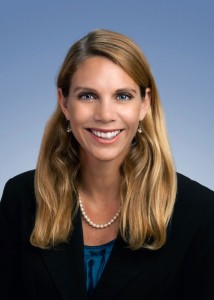
Nov 5, 2014 | Small Business
 As a licensed patent attorney, Shannon Sheldon has come to realize that many businesses and individuals on Maui are unfamiliar with how to protect their valuable intellectual property. That’s why she and her law firm – McKeon Sheldon Mehling – collaborated with Maui Economic Development Board to present “Barbarians at the Gate: Protecting Your Business from Outsiders and Insiders.” The event drew nearly 50 participants and offered free advice from attorneys and a technology consultant on how to protect business intellectual property assets and guard against competitors and employee mistakes.
As a licensed patent attorney, Shannon Sheldon has come to realize that many businesses and individuals on Maui are unfamiliar with how to protect their valuable intellectual property. That’s why she and her law firm – McKeon Sheldon Mehling – collaborated with Maui Economic Development Board to present “Barbarians at the Gate: Protecting Your Business from Outsiders and Insiders.” The event drew nearly 50 participants and offered free advice from attorneys and a technology consultant on how to protect business intellectual property assets and guard against competitors and employee mistakes.
“The most valuable asset in your business is often the intellectual property, and business owners need to take precautions to protect it,” Sheldon said. “In light of the current technology, this means protecting it from both the outsiders such as competitors, and even insiders, such as employees who inadvertently make mistakes in disclosing the data and confidential information,” she added. Sheldon said business owners could save money if they take preventative measures to protect their data and intellectual property. Judging from the workshop participants’ questions, Sheldon said she believed all learned something important in managing their assets.
“I left with a better understanding of how trademarks, copyrights and patents work and how important it is to have those in place to protect your IP and business,” said Anston Rodrigues, the owner and operator of Maui Needle Worx LLC. “There was a lot of information that was useful,” Rodrigues said. “I will do my best to put it to use. Most of all, ensuring I invest in protecting my intellectual properties.” Aside from Sheldon, her firm’s attorneys Linda Aragon and Rebecca Filipovic spoke at the workshop as well as Erik McFrazier, the founder, owner and lead technician for Computer Hale Inc. Following the workshop held in October at MEDB’s Malcolm Center, participants were offered one-on-one time with the attorneys and consultant. MEDB plans to add another legal seminar on a different topic in January 2015.
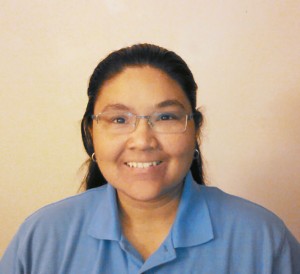
Jun 4, 2014 | Small Business

For more than 60 years, Ben Franklin Crafts has carved out its niche in Maui County’s business landscape with a simple guiding principle – top flight customer service. “Everything we do is somehow linked to satisfying our customers externally as well as internally,” said Carrera Catugal, Ben Franklin’s Assistant Store Manager at the Queen Kaahumanu Center. “That includes everything from simply bringing in local products to creating an enjoyable work environment for our employees and an enjoyable shopping environment for our customers.”
The first Ben Franklin store opened in 1951 in Kahului, but its roots go back further than that, Catugal said. It began as a modest dry goods store in Kahului, the K. Kamitaki store, owned by Shikano Kamitaki. The store transformed into the Kahului Dry Goods Store, run by Kamitaki’s children, Tadami and Matsuko (Mizoguchi). Today, Ben Franklin Crafts is committed to serving local crafters, Catugal said. The store organizes a semi-annual craft fair and provides local crafters the opportunity to sell hand-made craft products in the store. Catugal said it’s a source of pride for Ben Franklin employees that “we not only have customers who visit our location, sometimes daily as part of their livelihood, but that we can in turn provide a venue that allows crafting to be a viable lifestyle.”
She credits Ben Franklin’s success to “the freedom that we have as a business to engage our community outside the walls of our store.” She cited the store’s craft fair and its participation in Maui Economic Development Board’s STEM Conference. This year, the Ben Franklin team held sessions for approximately 150 students who learned about science through the use of everyday household items. “We are sending the message that we are not just another business with a bottom line, we are an active member of a growing community.” Catugal said she’s upbeat about the prospects for Maui’s economy. “When organizations like MEDB partner with the businesses that service Maui County, I feel that Maui’s economy will prosper and that even in times of hardship as a nation, we here on Maui will have stability,” she said.
May 20, 2014 | Small Business
 Facebook’s Small Business Boost is coming to Maui! with special guest speaker, Senator Brian Schatz
Facebook’s Small Business Boost is coming to Maui! with special guest speaker, Senator Brian Schatz
Through a special partnership with local business organizations, the Maui Economic Development Board (MEDB) and Facebook invite you to join experts from Facebook’s Small Business Team as they share best practices, success stories, and strategies for how to grow, manage, and understand your small business identity on Facebook. There are over one billion people on Facebook. Learn how to reach the right audience for your business and turn them into loyal customers.
Location: The King Kamehameha Golf Club (Waikapu Ballroom, 2500 Honoapiilani Hwy) in Wailuku.
Date: Sunday, May 25th.
Time: 4:00 Checkin & Networking 4:30 – 6:00pm Presentation
This is a FREE event!
Register for the event
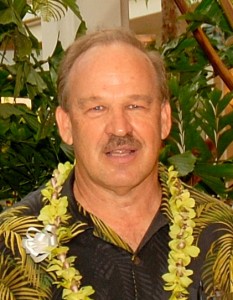
Mar 12, 2014 | Small Business
 At Betsill Brothers Construction Inc., business is more than building affordable homes and buildings. It’s about building relationships, a value inspired by the family patriarch, Doyle Betsill Sr. “We provide excellent service to our customers and our dad, who was a builder, taught us to build a better product for less than our competition,” said Dwayne Betsill, the company president and a board member of the Maui Economic Development Board. “We treat everyone with honor, regardless of their status and always respond to others the way we desire for them to respond to us. In our daily operations we choose to be fair and build a quality product for our customers.”
At Betsill Brothers Construction Inc., business is more than building affordable homes and buildings. It’s about building relationships, a value inspired by the family patriarch, Doyle Betsill Sr. “We provide excellent service to our customers and our dad, who was a builder, taught us to build a better product for less than our competition,” said Dwayne Betsill, the company president and a board member of the Maui Economic Development Board. “We treat everyone with honor, regardless of their status and always respond to others the way we desire for them to respond to us. In our daily operations we choose to be fair and build a quality product for our customers.”
Betsill Brothers began in the 1970s, with Doyle Betsill Sr., who taught his four sons a work ethic and foundation in the construction industry. The sons – Doyle Jr., Dwayne, Steve and Randy together founded Betsill Brothers on Kauai in 1993 to help repair the destruction from Hurricane Iniki. They moved to Maui a year later and started building 42 homes in Waiehu Terrace. Dwayne operates the company now. Steve died in 2002; Doyle Jr. has retired and Randy moved to Texas about nine years ago. The family business mission remains: To provide affordable housing in the islands. Betsill Brothers does a myriad of construction projects from residential homes to condominiums, commercial buildings and large remodeling jobs. The firm has had as many as 153 employees, many of whom are now subcontractors and vendors who partner on a variety of projects.
Betsill Brothers cut back staff to seven employees in 2007 to deal with an economic crash. Betsill said his company’s role in the economy is to provide jobs, especially through subcontractors. “We have built relationships and made good friends over the last 20 years, and that is our greatest success,” he said. Betsill supports MEDB‘s Ke Alahele Education program because: “I want to see our kids receive their education and return to the island and use their STEM education to improve our island.” The company also supports New Hope Maui, which mentors Maui students, and Feed My Sheep, a feeding program for needy residents. “Life is too short not to give back.”

Feb 19, 2014 | Small Business, Sustainability
 On Wednesday, February 26, 2014, Maui Food Technology Center will hold their 1st Annual Supply and Service Expo at the Hannibal Tavares Community Center in Pukalani from 10 am to 3 pm.
On Wednesday, February 26, 2014, Maui Food Technology Center will hold their 1st Annual Supply and Service Expo at the Hannibal Tavares Community Center in Pukalani from 10 am to 3 pm.
This is the perfect opportunity for new or existing food producers wanting assistance with the many challenges of developing a product and getting it into the marketplace, entrepreneurs planning to expand their network opportunities and resources, and consumers interested in attending the tradeshow and hearing the latest from experts in the food manufacturing, distribution and hospitality industries.
A tradeshow comprised of national, state and local service providers will feature manufacturers and distributors of food, ingredients, equipment and packaging supplies; dealers, brokers and traders; business services and educational groups that work with the food and hospitality industries. Entrepreneurs and existing businesses will also have an opportunity to network with brand identity and marketing industry professionals.
Specialized presentations will be held throughout the event. Featured speakers include
- Dr. Aurora Saulo, Professor and Extension Specialist in Food Technology with the University of Hawaii Maui College on “Food Safety Certified: What Does That Mean?”
- Marc McDowell, Executive Chef of Makena Resort on “Developing Local Products From Start To Finish”
- Marty Parisien, Co-Owner/CEO at Singing Dog Vanilla on “Social Media Zen”
- Mike Abrams, President of Flavor Waves, on “Get Out There, Make Friends, and Help People.”
Door prizes will be drawn throughout the event, must be present to win. Attendees are also eligible to win a 32 GB i-Pad Mini, need not be present to win. The first 100 people will receive a free Expo tote. Public admission is free.
Major event sponsors include: County of Maui Office of Economic Development, Fred Baldwin Memorial Fund, and Tri-Isle Resource Conservation and Development.
For more information on becoming an exhibitor and/or attending the Supply and Service Expo, visit MauiFoodTechnology.org or call 888-948-6382.

 Accu-Pest & Termite Control Services owner/operator Jerry Edlao has his hands full getting rid of pests for his customers, so he doesn’t have the time to tackle some of the pesky legal issues that affect his business. And that’s why the recent Legal Toolkit workshop was so valuable, he said. “I think that anyone who is a small business owner or thinking about becoming one needs to educate themselves on what (business) entity best fits their needs when doing business,” he said. “Taking advantage of workshops like this is essential to the success of a small business owner and his company.”
Accu-Pest & Termite Control Services owner/operator Jerry Edlao has his hands full getting rid of pests for his customers, so he doesn’t have the time to tackle some of the pesky legal issues that affect his business. And that’s why the recent Legal Toolkit workshop was so valuable, he said. “I think that anyone who is a small business owner or thinking about becoming one needs to educate themselves on what (business) entity best fits their needs when doing business,” he said. “Taking advantage of workshops like this is essential to the success of a small business owner and his company.”








